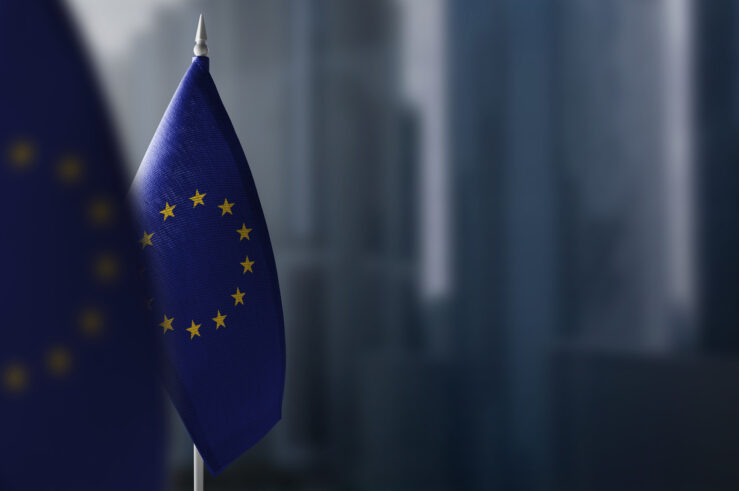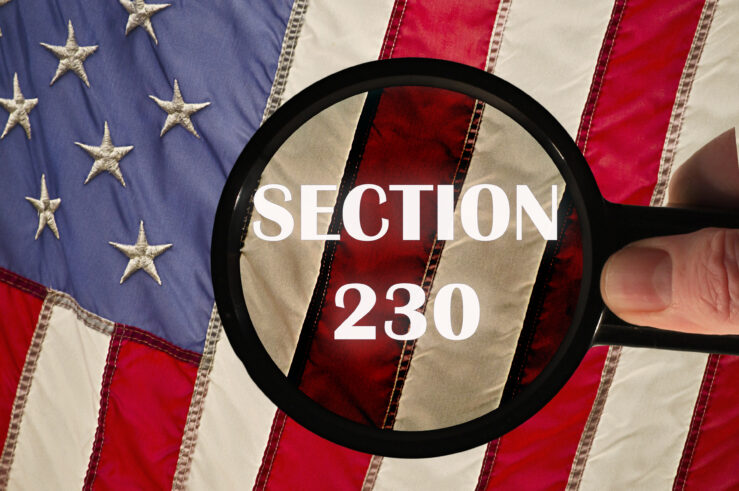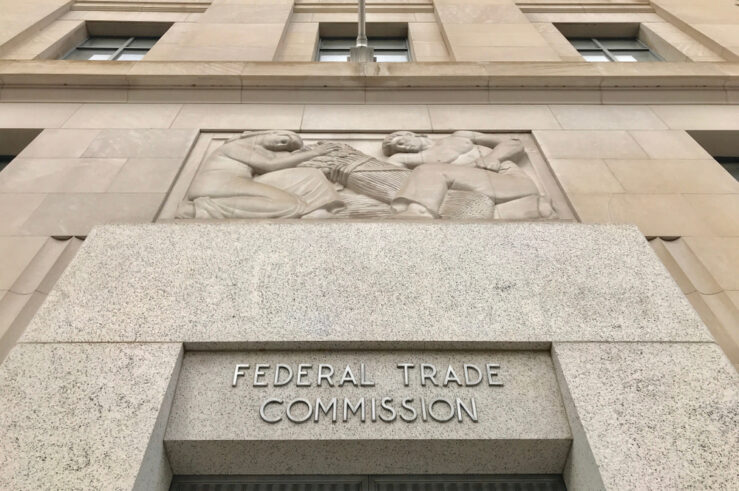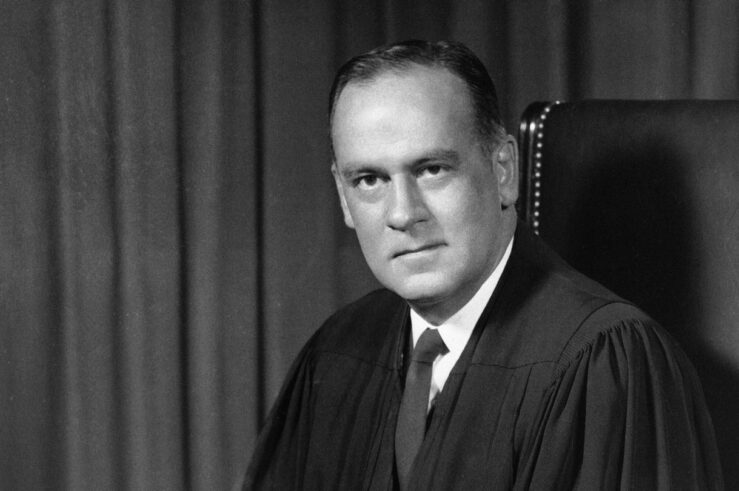Showing archive for: “Supreme Court”
Twitter v. Taamneh: Intermediary Liability, The First Amendment, and Section 230
After the oral arguments in Twitter v. Taamneh, Geoffrey Manne, Kristian Stout, and I spilled a lot of ink thinking through the law & economics of intermediary liability and how to draw lines when it comes to social-media companies’ responsibility to prevent online harms stemming from illegal conduct on their platforms. With the Supreme Court’s recent decision in Twitter v. Taamneh, ... Twitter v. Taamneh: Intermediary Liability, The First Amendment, and Section 230
What the European Commission’s More Interventionist Approach to Exclusionary Abuses Could Mean for EU Courts and for U.S. States
The European Commission on March 27 showered the public with a series of documents heralding a new, more interventionist approach to enforce Article 102 of the Treaty on the Functioning of the European Union (TFEU), which prohibits “abuses of dominance.” This new approach threatens more aggressive, less economically sound enforcement of single-firm conduct in Europe. ... What the European Commission’s More Interventionist Approach to Exclusionary Abuses Could Mean for EU Courts and for U.S. States
Twitter v. Taamneh and the Law & Economics of Intermediary Liability
The Senate Judiciary Committee’s Subcommittee on Privacy, Technology, and the Law will host a hearing this afternoon on Gonzalez v. Google, one of two terrorism-related cases currently before the U.S. Supreme Court that implicate Section 230 of the Communications Decency Act of 1996. We’ve written before about how the Court might and should rule in ... Twitter v. Taamneh and the Law & Economics of Intermediary Liability
How Will the Law Deal with AI Getting Facts Wrong?
It seems that large language models (LLMs) are all the rage right now, from Bing’s announcement that it plans to integrate the ChatGPT technology into its search engine to Google’s announcement of its own LLM called “Bard” to Meta’s recent introduction of its Large Language Model Meta AI, or “LLaMA.” Each of these LLMs use artificial intelligence ... How Will the Law Deal with AI Getting Facts Wrong?
No, Chevron Deference Will Not Save the FTC’s Noncompete Ban
The Federal Trade Commission (FTC) announced in a notice of proposed rulemaking (NPRM) last month that it intends to ban most noncompete agreements. Is that a good idea? As a matter of policy, the question is debatable. So far as the NPRM is concerned, however, that debate is largely hypothetical. It is unlikely that any ... No, Chevron Deference Will Not Save the FTC’s Noncompete Ban
Section 230 & Gonzalez: Algorithmic Recommendations Are Immune
In our previous post on Gonzalez v. Google LLC, which will come before the U.S. Supreme Court for oral arguments Feb. 21, Kristian Stout and I argued that, while the U.S. Justice Department (DOJ) got the general analysis right (looking to Roommates.com as the framework for exceptions to the general protections of Section 230), they ... Section 230 & Gonzalez: Algorithmic Recommendations Are Immune
The FTC’s Noncompete Rule: Shouldn’t Doesn’t Mean Can’t, but Maybe It Should
Former U.S. Labor Secretary Gene Scalia games out the future of the Federal Trade Commission’s (FTC) recently proposed rule that would ban the use of most noncompete clauses in today’s Wall Street Journal. He writes that: The Federal Trade Commission’s ban on noncompete agreements may be the most audacious federal rule ever proposed. If finalized, ... The FTC’s Noncompete Rule: Shouldn’t Doesn’t Mean Can’t, but Maybe It Should
Does the DOJ’s Approach in Gonzalez Point the Way Toward Section 230 Reform?
Later next month, the U.S. Supreme Court will hear oral arguments in Gonzalez v. Google LLC, a case that has drawn significant attention and many bad takes regarding how Section 230 of the Communications Decency Act should be interpreted. Enacted in the mid-1990s, when the Internet as we know it was still in its infancy, ... Does the DOJ’s Approach in Gonzalez Point the Way Toward Section 230 Reform?
The FTC’s NPRM on Noncompete Clauses: Flirting with Institutional Crisis
The Federal Trade Commission’s (FTC) Jan. 5 “Notice of Proposed Rulemaking on Non-Compete Clauses” (NPRMNCC) is the first substantive FTC Act Section 6(g) “unfair methods of competition” rulemaking initiative following the release of the FTC’s November 2022 Section 5 Unfair Methods of Competition Policy Statement. Any final rule based on the NPRMNCC stands virtually no ... The FTC’s NPRM on Noncompete Clauses: Flirting with Institutional Crisis
The FTC’s UMC Statement Creates a Target for Federal Courts
The Federal Trade Commission’s (FTC) recently released Policy Statement on unfair methods of competition (UMC) has a number of profound problems, which I will detail below. But first, some praise: if the FTC does indeed plan to bring many lawsuits challenging conduct as a standalone UMC (I am dubious it will), then the public ought ... The FTC’s UMC Statement Creates a Target for Federal Courts
The New FTC Section 5 Policy Statement: Full of Sound and Fury, Signifying Nothing?
The Federal Trade Commission’s (FTC) Nov. 10 Policy Statement Regarding the Scope of Unfair Methods of Competition Under Section 5 of the Federal Trade Commission Act—adopted by a 3-1 vote, with Commissioner Christine Wilson issuing a dissenting statement—holds out the prospect of dramatic new enforcement initiatives going far beyond anything the FTC has done in ... The New FTC Section 5 Policy Statement: Full of Sound and Fury, Signifying Nothing?
The FTC Knows It When It Sees It
When Congress created the Federal Trade Commission (FTC) in 1914, it charged the agency with condemning “unfair methods of competition.” That’s not the language Congress used in writing America’s primary antitrust statute, the Sherman Act, which prohibits “monopoliz[ation]” and “restraint[s] of trade.” Ever since, the question has lingered whether the FTC has the authority to ... The FTC Knows It When It Sees It
















